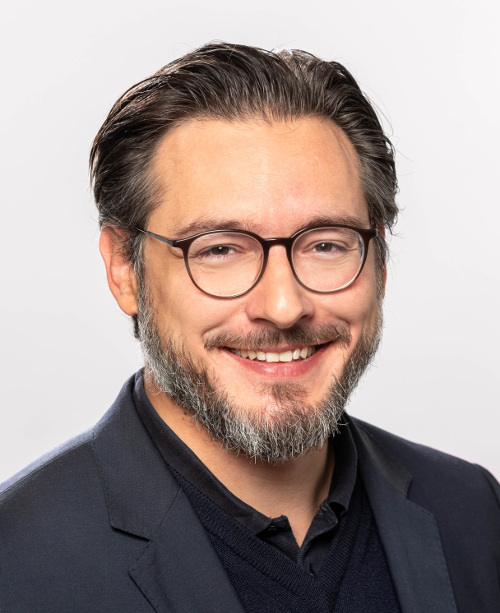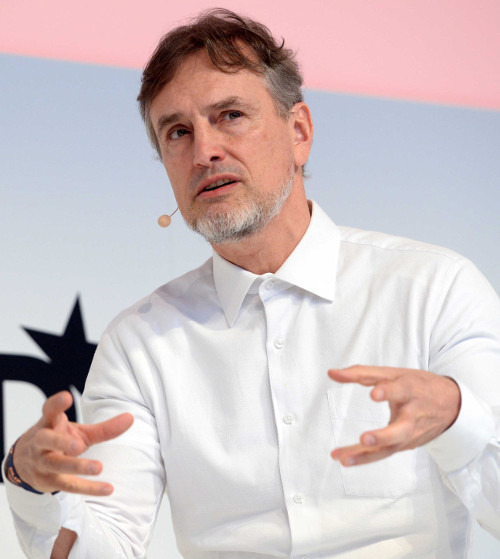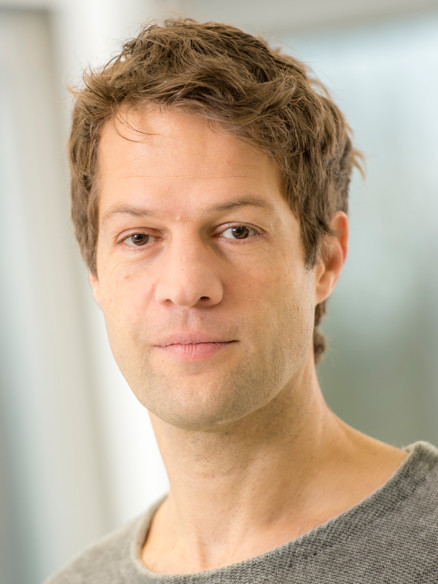ICANN 2019 will feature the following confirmed keynote speakers:
- Prof. Sami Haddadin (Technical University of Munich)
- Prof. Dr. Klaus-Robert Müller (Technische Universität Berlin)
- Prof. Jürgen Schmidhuber (Co-founder & Chief Scientist, NNAISENSE; Scientific Director, Swiss AI Lab IDSIA; Professor of AI, USI & SUPSI, Switzerland)
- Prof. Fabian Theis (Technical University of Munich and Helmholtz Zentrum München)
- Prof. Alessandro Villa (ex-president of ENNS, University of Lausanne, Switzerland)
Prof. Sami Haddadin

Professor, Technical University of Munich
[homepage]
Biography: Prof. Sami Haddadin is Director of the Munich School of Robotics and Machine Intelligence at the Technical University of Munich (TUM) and holds the Chair of Robotics and System Intelligence. His research interests include intelligent robot design, robot learning, collective intelligence, human-robot interaction, nonlinear control, real-time planning, optimal control, human neuromechanics and prosthetics, and robot safety.
Prof. Haddadin was Chair of the Institute of Automatic Control at Gottfried Wilhelm Leibniz Universität Hannover from 2014 to 2018. Prior to that, he held various positions as a researcher at DLR. He holds degrees in electrical engineering, computer science and technology management from the Technical University of Munich and the Ludwig Maximilian University of Munich. He received his PhD summa cum laude from RWTH Aachen University. He has published more than 130 scientific articles in international journals and conferences. He has received numerous awards for his scientific work, including the George Giralt PhD Award (2012), the RSS Early Career Spotlight (2015) and IEEE/RAS Early Career Award (2015), the Alfried Krupp Award for Young Professors (2015), the German Future Prize of the Federal President (2017) and the Leibniz Prize (2019).
Prof. Haddadin is the founder of Franka Emika GmbH (Munich, 2016). During his time as at DLR, he played a major role in the development of the lightweight robot technology, which became the KUKA LBR iiwa in technology transfer.
Prof. Dr. Klaus-Robert Müller

Professor, Technische Universität Berlin and Korea University, Seoul.
[homepage]
Biography: KR Müller is Professor for Machine Learning at the department of Computer Science at Technische Universität Berlin and at the Department of Cognitive Science and Engineering at Korea University, Seoul. For 5 years he was director of the Bernstein Center for Neurotechnology, from 2014 became Co-director of the Berlin Center for Big Data and from 2018 simultaneously became director of the Berlin Machine Learning Center. In 2012, he was elected to be a member of the German National Academy of Sciences – Leopoldina, in 2017 of the Berlin Brandenburg Academy of Sciences and also in 2017 as an external scientific member of the Max-Planck Society (MPII). In 2014, he received the Berlin Science prize awarded by the governing Mayor of Berlin; in 2017 the Vodafone Innovation Award. Over all, there are 35 full time researchers under his direct supervision. His research interest are in the field of machine learning, deep learning, explainable AI and data analysis covering a wide range of theory and numerous scientific (Physics, Chemistry and Neuroscience) and industrial applications.
Prof. Jürgen Schmidhuber

Co-founder & Chief Scientist, NNAISENSE; Scientific Director, Swiss AI Lab IDSIA; Professor of AI, USI & SUPSI, Switzerland
[homepage]
Biography: Since age 15, the main goal of Jürgen Schmidhuber has been to build a self-improving Artificial Intelligence (AI) smarter than himself, then retire. He is often called the father of modern AI. His lab’s deep learning neural networks such as LSTM have revolutionized machine learning, are now on 3 billion smartphones, and used billions of times per day, for Facebook’s automatic translation (2017), Google’s speech recognition (since 2015), Apple’s Siri & QuickType, Amazon’s Alexa, etc. He also pioneered unsupervised adversarial networks, artificial curiosity and meta-learning machines that learn to learn. He is recipient of numerous awards, and chief scientist of the company NNAISENSE, which aims at building the first practical general purpose AI. He is also advising various governments on AI strategies.
Prof. Fabian Theis

Professor, Technical University of Munich and Helmholtz Zentrum München
[homepage]
Biography: Fabian Theis obtained MSc degrees in Mathematics and Physics at the University of Regensburg in 2000. He received a PhD degree in Physics from the same university in 2002 and a PhD in Computer Science from the University of Granada in 2003. He worked as visiting researcher at the department of Architecture and Computer Technology (University of Granada, Spain), at the RIKEN Brain Science Institute (Wako, Japan), at FAMU-FSU (Florida State University, USA) and at TUAT’s Laboratory for Signal and Image Processing (Tokyo, Japan), and headed the ‘signal processing & information theory’ group at the Institute of Biophysics (Regensburg, Germany). In 2006, he started working as Bernstein fellow leading a junior research group at the Bernstein Center for Computational Neuroscience, located at the Max Planck Institute for Dynamics and Self-Organisation at Göttingen. In summer 2007, Fabian Theis became working group head of CMB at the Institute of Bioinformatics at the Helmholtz Center Munich. In spring 2009, he became associate Professor for Mathematics in Systems Biology at the Math Department of the TU Munich. 2009-2014 he was member of the ‘Young Academy’ (founded by the Berlin-Brandenburg Academy of Sciences and Humanities and the German Academy of Natural Scientists Leopoldina). In 2010 he was awarded an ERC starting grant. Since May 2013 Fabian Theis is Director of the Institute of Computational Biology at the Helmholtz Zentrum München and holds the Chair “Mathematical Modeling of Biological Systems” at the Department of Mathematics of the TU Munich. Since 2019 he is associate faculty at the Wellcome Trust Sanger Institute, Hinxton, UK. His research interests include development of computational methods for analyzing and modelling single cell heterogeneities as well as machine and in parts deep learning for prediction in biology and biomedicine. In 2017 he was awarded the Erwin Schrödinger prize together within an interdisciplinary team at the ETH Zürich. Fabian Theis is part of and also coordinates various consortia (i.e. sparse2big involving 8 Helmholtz Centers) and founded the network SingleCellOmics Germany (SCOG). Furthermore he coordinates the recently launched Munich School for Data Science (MUDS). Since 2019 he is official member of the Management Committee of Helmholtz Zentrum München.
Prof. Alessandro Villa

Professor of Neuroeconomics and Neuroinformatics, University of Lausanne, Switzerland, ex-president of ENNS
[homepage]
Biography: Alessandro E.P. Villa holds a Master degree in Applied Computer Science from the Swiss Federal School of Technology (EPFL) and a PhD in Neurophysiology (University of Lausanne, Switzerland). After several years of collaborations in USA, Israel, Italy and France, he founded the Neuroheuristic Research Group promoting a transdisciplinary approach and translational research projects involving neuroscience, molecular biology, physiology and computer science. His research activities were awarded by the Swiss Society for Biological Psychiatry and by the French Alternative Energies and Atomic Energy Commission. He currently holds a chair in neuroinformatics and neuroeconomics at the University of Lausanne with a focus of research on the nonlinear dynamical analysis of brain activity and the sensorimotor integration in natural and artificial brain systems during decision-making tasks. He was elected for two terms as President of the European Neural Network Society and the assembly of the Swiss Academy of Engineering Sciences (SATW) has nominated Alessandro Villa as individual member of the Academy for his scientific contribution to the study of complex evolvable systems.

